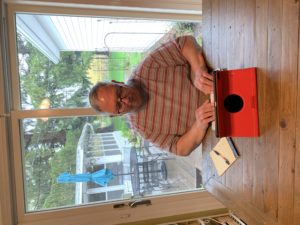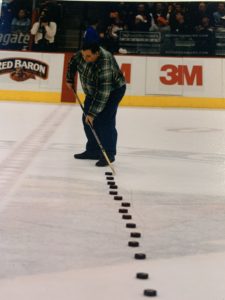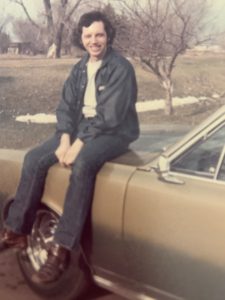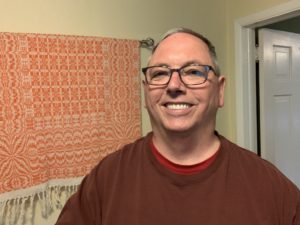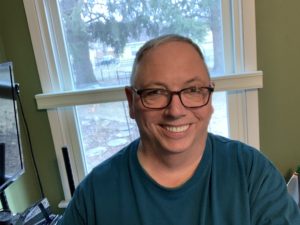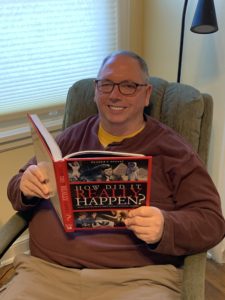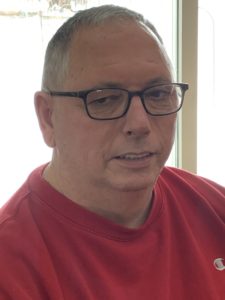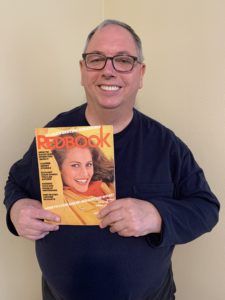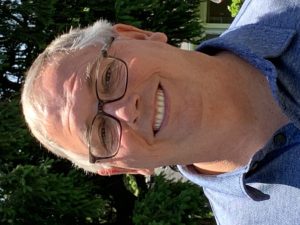
Within the past three months, some 108,000 Americans died from COVID-19 disease. Over 95% were over age 40. COVID-19 creates orphans. Mostly adult orphans but orphans nonetheless. The surviving children, adult or otherwise, will very much miss those who succumb.
I am 67 years old. I was orphaned thirty years ago. To this very day, I still miss my parents. I think about them regularly. I talk about them with others regularly. I talked to a stranger walking by our house yesterday, and during the conversation, I mentioned my dad was a bricklayer.
I am so glad for my memories of my parents. However, memory does not come close to actual live interaction. I wonder if mom would still give me a look of disapproval if I swore in front of her. She met my children but never knew my grandchildren. I bet she would like them a lot.
Mom died in 1990, dad died twenty years earlier, in 1970. Linda’s mom died in 1964 and her dad thirty years later in 1994. We’ve been orphans for over 25 years.
Mom was a no show for dinner with some friends. She did not answer her phone when they called her, so they called me. Drive to her apartment, knock on the door. No answer. Manager’s office, key, door chained from inside, hacksaw, There on the couch in her living room was mom, obviously dead. I was calling my sisters while waiting for the police to arrive when it dawned on me, I was now an orphan.
My guess is the children of each COVID-19 disease victim recalls where they were when they heard and the various extraneous details of their parent’s passing. If that parent’s passing made them an orphan, I would guess the empty feeling of being an orphan hit them within minutes of finding out their last parent died.
Being an orphan sucks. COVID-19 sucks for creating so many new orphans.
The virus SARS-CoV-2 causes COVID-19 disease. The infected spread the SARS-CoV-2 virus to others mostly via the droplets of saliva dispersed into the air by breathing, talking, singing, screaming, and the like. Which is a fancy way of saying, COVID-19 spreads by social interaction.
Most of the time, COVID-19 is not fatal. As our healthcare providers learn more about treating the disease, the mortality rate is decreasing. Which is wonderful but over 108,000 times in the past three months, the infected person died before their time. Every day many hundreds of our fellow citizens die from COVID-19. Yep, COVID-19 sucks.
Unfortunately, much of the economy is built around our personal interactions with each other. Limiting social interactions delays the spread of COVID-19 but it also severely limits the economy.
The trick moving forward is to walk the tightrope between loosening up on social distancing enough to put more people back to work without lessening it so much that the number deaths skyrocket. We need to strike a balance between limiting people sharing too much of the same air and allowing some limited face to face transactions between buyers, sellers, and other customers.
The impact of striking the balance is devastating to some businesses and actually helps some others. It is a tough test of leadership. Public health vs. jobs requires strong political leaders.
The SARS-CoV-2 virus does not care about politics or economics. The SARS-CoV-2 virus spreads whenever it has the opportunity to spread. Social distancing slows the spread, congregating increases the spread. Face masks slow the spread, not wearing a face mask increases the spread. Having enough ICU beds and trained healthcare professionals to limit the number of deaths vs. letting COVID-19 kill our parents.
Managing the United States’ response to COVID-19 is a tough, very difficult job. There is no perfect solution. It requires strong, informed, leadership to lead the nation through the deadly minefield that is this global pandemic. The competing interests all have compelling, often mutually exclusive interests. There is little to no precedent from which guidance can be taken. Managing this crisis is not about winning, rather about doing the best you can under very difficult circumstances.
The United States President failed to respond to the early warnings. As the crisis built, the President abdicated to the Governors of each state his responsibility to lead our response to the pandemic. As the crisis heightened the President did not then seize control of the response, rather choosing to make a series of confusing, seemingly politically motivated statements about the actions taken in response to the COVID-19 pandemic by the Governors.
Right now there does not appear to be any coherent national plan for reaching the balance between economics and public health. The number of orphans keeps increasing day after day, week after week, with only wild speculation as to when a vaccine will be available. In the meantime the economy is tanking with the unemployment rate is at historic highs.
We are watching our President taking potshots at our governors one minute and praise them the next, seemingly more concerned with the optics than saving his fellow American senior citizens. We are left telling each other our sad tales about how COVID-19 decided which of us should become an orphan next.
In case you did not know how I feel, let me be clear. Being an orphan sucks. COVID-19 sucks for creating so many new orphans.
The closer you look, the more you see.
